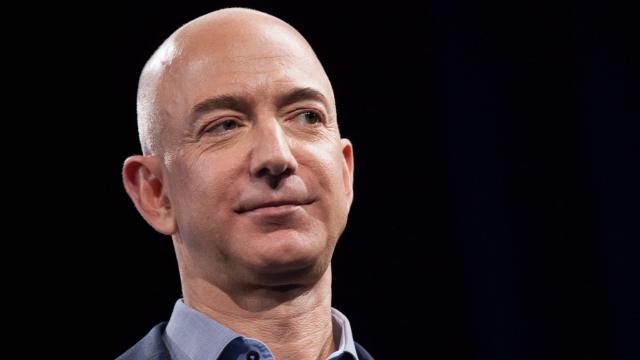On Wednesday, during an Amazon shareholder meeting, investors will vote on proposals pushing for more oversight on the tech giant’s facial recognition efforts. But there are a number of caveats.
There are two proposals pertaining to facial recognition tech—one would ban Amazon from selling this technology to government agencies unless the board decides after an independent investigation that it wouldn’t be a human rights violation, according to a Security and Exchange Commission filing.
The second solicits an independent investigation and report on Amazon’s facial recognition tech, Rekognition, detailing “the extent to which such technology may endanger, threaten, or violate privacy and or civil rights, the extent to which such technologies may be marketed and sold to certain foreign governments, and the financial or operational risks associated with these issues.”
Amazon’s Rekognition system has been mired in controversy, with struggled to identify people of colour.
And yet, an investigation by the American Civil Liberties Union last year found that the company pushed this tech hard on law enforcement and government agencies, the former of which has admitted to not using the technology as Amazon recommended.
The shareholder proposals mark the ever growing concern from the public on this powerful surveillance tool and its deployment in a (mostly) lawless and unregulated space, especially from one of the most powerful companies in the world. But Wednesday’s vote will likely serve as a largely procedural call to action, even if the votes pass.
Bezos, even after his divorce, still maintains a 12 per cent stake in the company.
As of earlier this year, he maintained his position as the top Amazon shareholder.
Bezos has been vocal about his interest in working in tangent with government agencies, which makes his vote in favour of these proposals unlikely. During a summit last year, Bezos reportedly defended Amazon’s contract with the Department of Defence as well as suggested that governments are best equipped to solve widespread, national issues.
“We want individuals to be able to pursue things they think are important and we want governments to pursue things that are important,” Bezos said, the Verge reported. He added, “There are things only governments can do, just because of scale. My Amazon stock is tiny compared to the resources of the US federal government.”
But Bezos stock in this instance is nearly a direct line to the resources for the US federal government—if he was to throw his weight behind the proposals urging for more oversight and transparency around Amazon’s facial recognition tech, an inarguably crucial first step given the company hasn’t established an ethics board, then government agencies wouldn’t be able to so easily snatch up the company’s tech.
Per the first proposal, the tech would need a third party to determine that it wouldn’t violate any human or civil rights before it could be sold to a government agency.
“This piece of equipment that Amazon has fostered and developed and is really propagating at this point doesn’t seem to us to be in the best interest of the common good,” Sister Pat Mahoney, a member of the Sisters of Saint Joseph, an Amazon investor that introduced the first proposal, told the New York Times. “Facial recognition all over the place just makes everyone live in a police state.”
We have reached out to Amazon for comment on these proposals, and in the event that they get a majority vote, if the company will honour these calls to action. But as was mentioned, these votes are nonbinding, and Amazon doesn’t have to actually consider or enact them. And even if they did, the proposals don’t sweepingly ban facial recognition tech — they call for more oversight, which is great, but there’s still room for the technology to be exploited.
That’s why laws effectively banning the use of it all together have become increasingly urgent, and why federal regulation, which Microsoft’s president and chief legal officer Brad Smith called for, makes more sense than relying on companies to decide to police themselves.
“We live in a nation of laws, and the government needs to play an important role in regulating facial recognition technology,” Smith wrote in a blog post last year.
“As a general principle, it seems more sensible to ask an elected government to regulate companies than to ask unelected companies to regulate such a government.”
